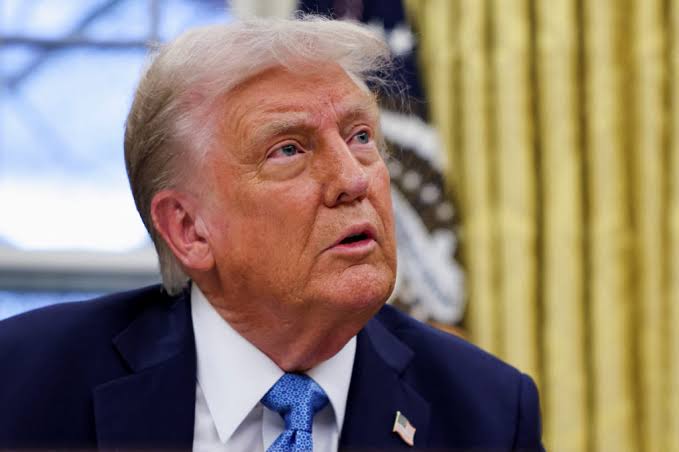Trump Warns of Economic ‘Pain’ as His New Tariffs Ignite Trade War
Washington, D.C. – February 8, 2025
Former President Donald Trump has acknowledged that Americans could face economic hardship as his proposed tariffs begin to take effect, setting the stage for a potential trade war with major U.S. partners. Speaking at a rally in South Carolina, Trump defended his plan for sweeping tariffs on imports, arguing they are necessary to rebuild American manufacturing and reduce reliance on foreign goods.
“There might be some pain, but it’s pain for progress,” Trump told supporters. “We have to fight for our country, and that means standing up to bad trade deals and bringing jobs back to America.”
The comments come amid growing concerns from economists and business leaders that the tariffs—aimed primarily at China, Mexico, and certain European nations—could trigger price hikes on consumer goods, disrupt supply chains, and lead to retaliatory measures from U.S. trading partners.
Potential Economic Fallout
Trump’s proposed trade policies include a universal baseline tariff of 10% on all imports and significantly higher tariffs on Chinese products, potentially reaching 60%. If implemented, these measures could lead to increased costs for American consumers and businesses.
Wall Street reacted swiftly to Trump’s statements, with major indexes showing volatility as investors weighed the risk of a full-blown trade war. Industries that rely heavily on imports, such as electronics, automobiles, and retail, have voiced concerns that rising costs will be passed down to consumers.
Economists warn that the tariffs could have unintended consequences, such as inflationary pressures and potential job losses in industries dependent on global trade. Critics also point out that similar trade wars in the past have resulted in economic slowdowns rather than the revitalization Trump promises.
Global Response & Retaliation Fears
Foreign governments are closely watching Trump’s tariff strategy, with some signaling that they may impose retaliatory tariffs on American goods. China, the European Union, and Mexico have previously responded to U.S. trade barriers with countermeasures, targeting American agricultural exports and key industries.
China’s foreign ministry warned that any move to impose steep tariffs would be met with “firm and necessary countermeasures.” European officials have also hinted at imposing tariffs on American-made goods such as whiskey, motorcycles, and agricultural products, similar to measures taken during Trump’s first term.
Biden and Business Leaders Respond
The Biden administration has criticized Trump’s tariff threats, arguing they would harm working-class Americans. President Joe Biden’s economic advisors have suggested that trade restrictions could drive up inflation and weaken consumer spending.
Business leaders from major corporations, including those in the tech and auto industries, have also pushed back against the proposal. The U.S. Chamber of Commerce warned that new tariffs could “hurt American businesses far more than they help and invite unnecessary economic conflict.”
Trump Stands Firm
Despite concerns, Trump remains steadfast in his belief that tariffs will ultimately strengthen the U.S. economy. He claims his strategy will pressure other countries to negotiate fairer trade deals and prevent what he calls “theft of American wealth.”
With the 2024 election behind him and Trump reemerging as a dominant force in conservative politics, his economic policies are likely to remain a hot-button issue. Whether the American public is willing to endure the “pain” he predicts remains to be seen.
— End of Report —

